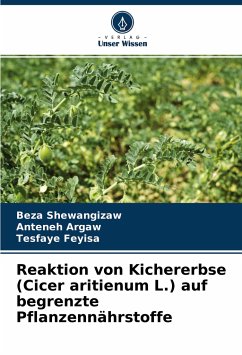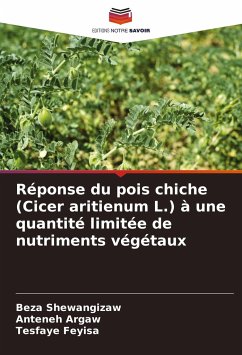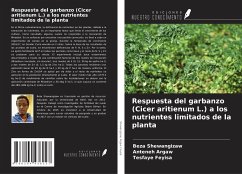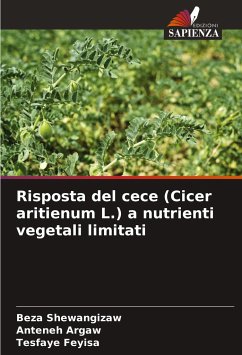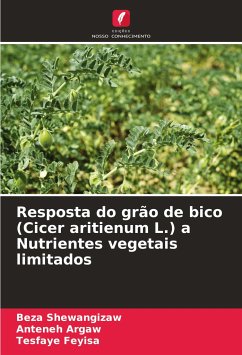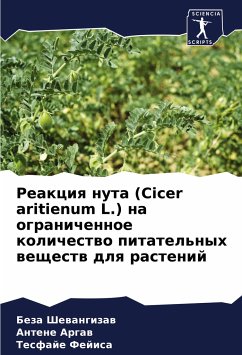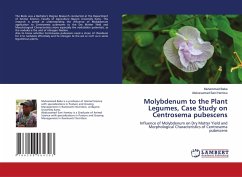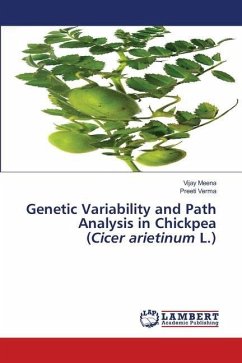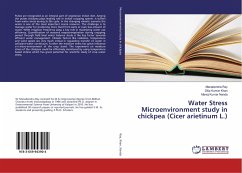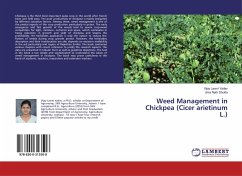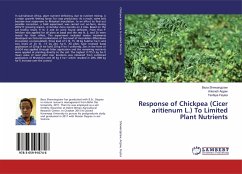
Response of Chickpea (Cicer aritienum L.) To Limited Plant Nutrients
Versandkostenfrei!
Versandfertig in 6-10 Tagen
47,99 €
inkl. MwSt.

PAYBACK Punkte
24 °P sammeln!
In sub-Saharan Africa, plant nutrient deficiency, due to nutrient mining, is a major growth limiting factor for crop production. As a result, some soils become non responsive to Rhizobial inoculation. In an effort to find out possible correction, a field experiment was carried out on-farm, during 2016/17 growing season, at Gondar Zuria woreda on 2 sites. Based on the soil testing result, P, N, S and Zn were found deficient. From thus P fertilizer was applied for all plots as basal and the rest N, S, and Zn were tested for their effect. The experiment included twelve treatments developed via fa...
In sub-Saharan Africa, plant nutrient deficiency, due to nutrient mining, is a major growth limiting factor for crop production. As a result, some soils become non responsive to Rhizobial inoculation. In an effort to find out possible correction, a field experiment was carried out on-farm, during 2016/17 growing season, at Gondar Zuria woreda on 2 sites. Based on the soil testing result, P, N, S and Zn were found deficient. From thus P fertilizer was applied for all plots as basal and the rest N, S, and Zn were tested for their effect. The experiment included twelve treatments developed via factorial combination of two level of inoculation (Rhizobium inoculated, un-inoculated), three level of S (0, 15, 30 kg Sulphur ha-1) and two levels of Zn (0, 1.5 kg Zinc ha-1). All plots have received basal application of 20 kg N ha-1and 20 kg P ha-1 uniformly. Zinc in the form of ZnSO4 was applied through foliar application and the remaining nutrients were applied at planting directly to thesoil. The highest (1775.5 kg ha-1) mean value of seed yield over locations was obtained from combined application of Rhizobium and 30 kg S ha-1 which resulted in 28% (389 kg ha-1) increase over the control



